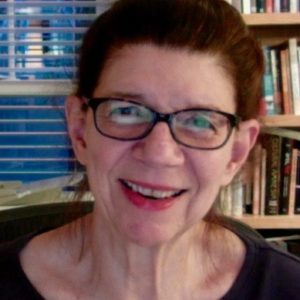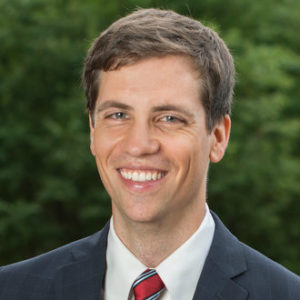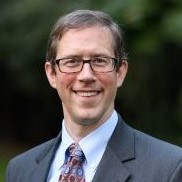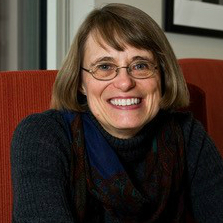African American Political Thought
Learn how the political tradition of Black Americans has made an indelible impression on American history.
Tuesdays | January 4, 11, 18, 25, & February 1
Online Seminar Series
Nigerian literary giant Chinua Achebe is celebrated as the father of modern African literature. In this seminar, fellows will read two novels from his famed “African Trilogy” – his groundbreaking first novel, Things Fall Apart (1958), about the tragic downfall of the Ibo warrior Okonkwo, and its sequel, No Longer at Ease (1960), about Okonkwo’s Western-educated grandson who returns to Nigeria for a job in the colonial civil service.
In following the lives of the Okonkwo family – from the first contact of European colonists to the waning days of the British Empire – fellows will reflect on the complicated relationship between African tradition and Western influence, the ravages of corrupt governance, and the challenge of moral agency when different belief systems overlap and compete.
Image Credit: Door; Lintel, Olowe of Ise, The British Museum
Martha Bayles on American soft power
This course takes place via Zoom over five sessions, held on Tuesdays, from 6 to 8 PM ET. Fellows will receive a $200 stipend contingent upon participation in the course and completion of a brief response paper. All course materials will be provided.

Martha Bayles is a fellow at the Institute for Advanced Studies in Culture at the University of Virginia, and since 2003 she has taught humanities at Boston College. She is currently at work on a monograph on the threats to independent journalism around the world; and a book about the importance of “voluntary restraint” in the American tradition of free speech.

Martha Bayles writes about the arts, cultural policy, and media. A former columnist for the American Interest, she is a Contributing Editor to the American Purpose and film and TV critic for the Claremont Review of Books. She is the author of two books: Hole in Our Soul: The Loss of Beauty and Meaning in American Popular Music (Chicago University Press 1996) and Through a Screen Darkly: Popular Culture, Public Diplomacy, and America’s Image Abroad (Yale University Press 2014). A fellow at the Hudson Institute and the Institute for Advanced Studies in Culture at the University of Virginia, she is currently at work on a monograph on the threats to independent journalism around the world; a book about free speech in the digital age; and a memoir about race entitled Off White. Since 2003 she has taught humanities at Boston College.
Readings:
Assignment:
First, watch the 1964 interview with Achebe, conducted at the National Museum in Lagos by Lewis Nkosi, a South African journalist; and Wole Soyinka, a Nigerian (Yoruba) writer who was already becoming famous for his poetry and plays. If you watch carefully, you will see a bit of rivalry between Soyinka and Achebe, as well as mutual respect. Come to class prepared to share your responses to this video as a reflection of the times: five years after the publication of Things Fall Apart, and four years after Nigerian independence.
Second, read Chapters 1-8 of Things Fall Apart, which immerse the reader in the life of Umuofia, an Igbo village in the 1890s, when it was still unaware of the outside world, including the British colonial presence along the southwestern coast of what is now Nigeria.
To bend your mind a little, I also attach a short piece by the young Igbo writer Adaobi Tricia Nwaubani, about her great-grandfather, who was a slave trader. She published it in the New Yorker in 2018.
Discussion Questions:

Diana Schaub
Diana Schaub is a nonresident senior fellow at the American Enterprise Institute (AEI), where her work is focused on American political thought and history, particularly Abraham Lincoln, Frederick Douglass, African American political thought, Montesquieu, and the relevance of core American ideals to contemporary challenges and debates. Concurrently, she is Professor Emerita of Political Science at Loyola University Maryland, where she taught for almost three decades.

Antón Barba-Kay
Antón Barba-Kay is Associate Professor of Philosophy at The Catholic University of America, in Washington, D.C. (He is also, at the moment, Visiting Professor of Humanities at Deep Springs College, in California.) He earned his Ph.D. from the University of Chicago’s Committee on Social Thought, with a dissertation on Hegel’s Phenomenology of Spirit. The bulk of his research has concentrated on the subjects of recognition and aesthetics in nineteenth-century German philosophy. He is also writing a book about the political and philosophical implications of the digital revolution.

Thomas Merrill
Thomas Merrill is an associate professor in the School of Public Affairs at American University. He is the author of Hume and the Politics of Enlightenment. He is also the co-editor of three edited volumes, including The Political Thought of the Civil War.

Vickie Sullivan
Vickie Sullivan is the Cornelia M. Jackson Professor of Political Science and teaches and studies political thought and philosophy. She also maintains teaching and research interests in politics and literature. She has published extensively on Montesquieu and Machiavelli and is the co-editor of Shakespeare’s Political Pageant.